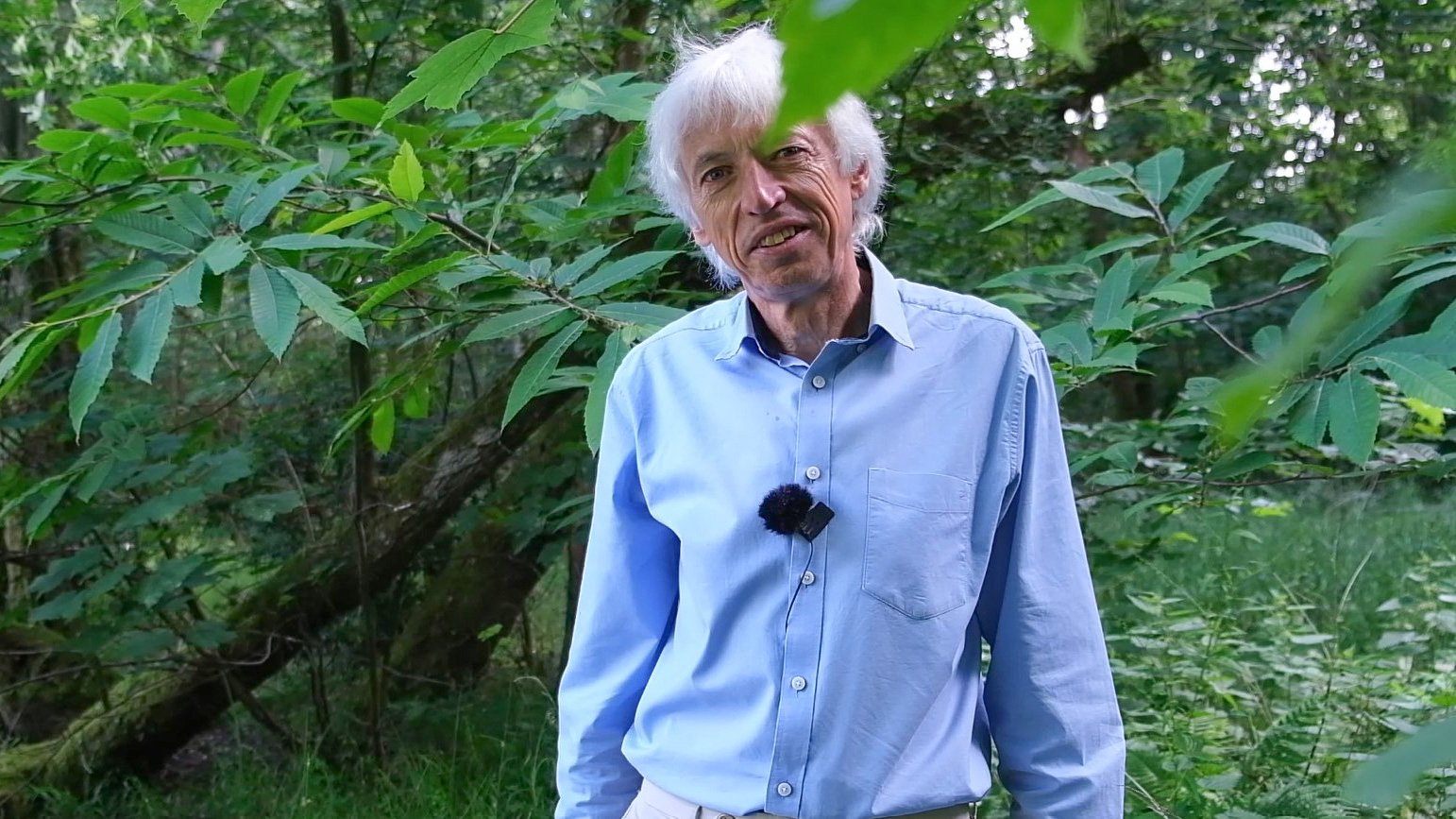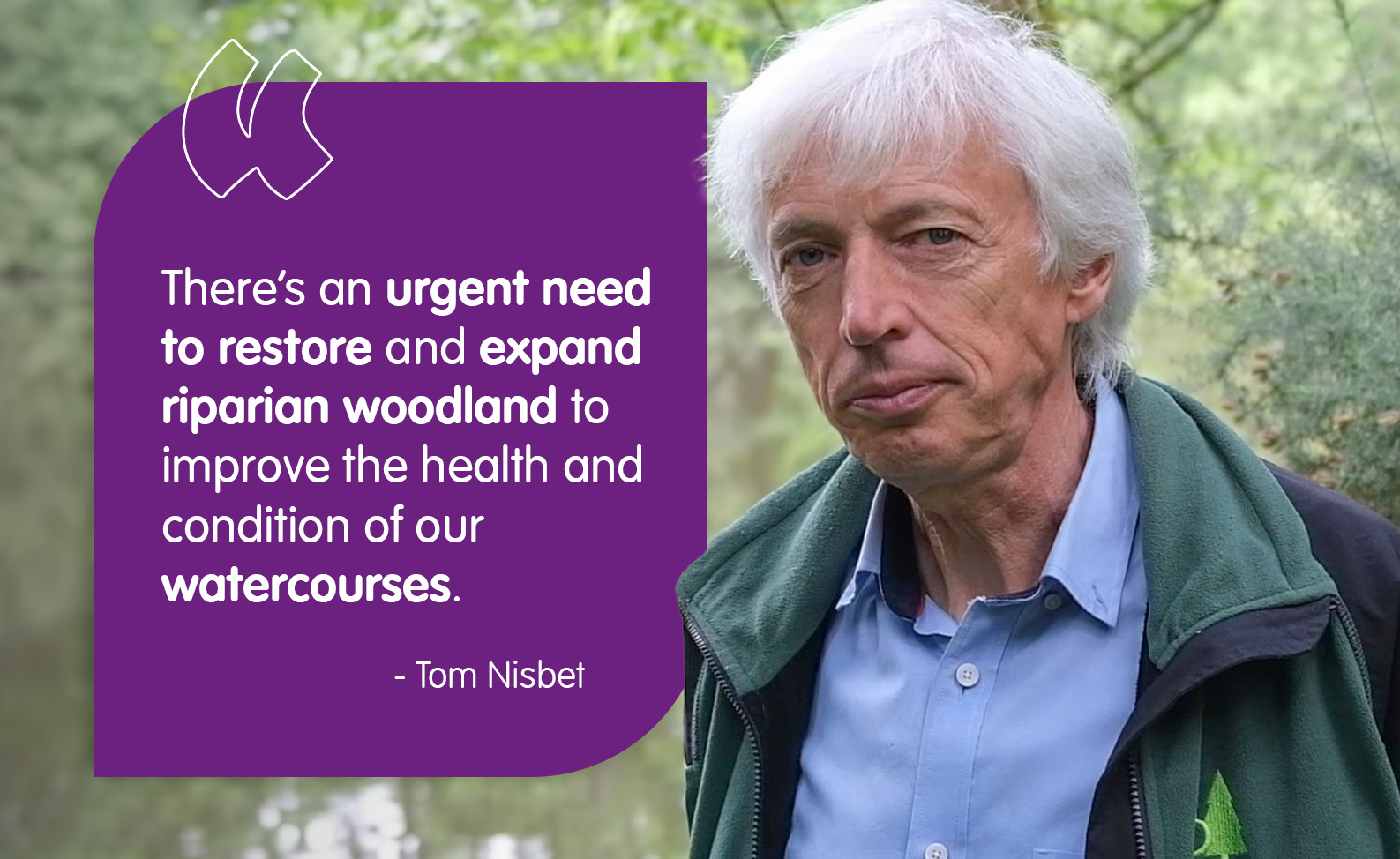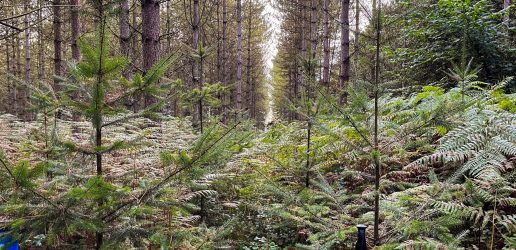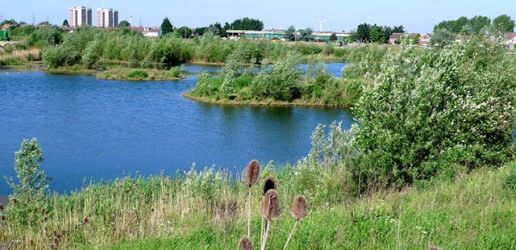Forest Research has published a new UK Forestry Standard (UKFS) Practice Guide on Creating and Managing Riparian Woodland.

The UK’s riparian woodland has been depleted over recent decades, often through clearance for agriculture and development. Reversing this habitat loss and encouraging the restoration of riparian woodlands can deliver the following important environmental benefits:
- Climate change mitigation – providing conditions that keep water cooler and that reduce downstream flooding
- Increased biodiversity – enhancing riparian and aquatic habitats can support protected and priority species
- Improved water quality – reducing water pollution by buffering the impacts of management activities occurring on adjacent land
- Increased natural capital – contributing to nature recovery and nature-based solutions.
New UKFS Practice Guide to help restore and expand riparian woodland
Lead author of the Practice Guide and Forest Research’s Head of Physical Environmental Sciences, Tom Nisbet, said: “This publication describes how we can do better in creating, designing and managing trees and woodlands along our streams and rivers to protect and improve our freshwater environment.
“We continue to hear about the poor condition of many of our streams and rivers and the growing pressure of water pollution. This comes from many different sources including soil and nutrient run-off from adjacent land. The planting of trees and woodland along our watercourses, what we call riparian woodland, can do much to reduce pollutant run-off to water as well as to slow flood flows and cool water temperatures.”
Tom continues: “Much of our riparian woodland has been lost due to clearance for agriculture and development, with what remains often sparse and highly fragmented. There’s an urgent need to restore and expand riparian woodland to improve the health and condition of our watercourses as well as the look and feel of our streams and rivers.
“The new UK Forestry Standard Practice Guide provides information to woodland owners, managers and planners on how best to achieve this goal. By so doing, the creation of a network of riparian woodland along our waterways will not only greatly benefit the water environment but will also contribute to national and local efforts to adapt to climate change, as well as promote nature recovery.”

Tom said: “We face many challenges, including persuading landowners to plant riparian woodland when there’s little scope for productive management and thus economic return. Grant payments help but appear insufficient to achieve the scale of change required. We need to better value the societal benefits riparian woodland provides and thereby encourage greater private and public investment in restoring this key natural asset.”
“However, it is not just about planting more riparian trees, we also need to design and manage riparian woodland appropriately. This includes controlling invasive non-native species and maintaining a balance between open and riparian woodland habitats.”
Download the guide
UK Forestry Standard Practice Guide on Creating and Managing Riparian Woodland [PDF, 3.1 MB]
More on the UK Forestry Standard
The UKFS is the technical standard for forestry across the UK. It provides the foundation for sustainable forest management that balances environmental, economic and social objectives. The term ‘forest’ is used to indicate all types and sizes of forest and woodland.
Recent News
View All news
Underplanting extends range of coniferous tree species to diversify future commercial timber production
New Forest Research published in Forest Ecology and Management shows that underplanting could widen the range of conifers suitable for future UK timber production.

New land regeneration resources for creating green spaces on previously used land now available
The new resources bring together the latest learnings on land regeneration and climate change, and optimal soil thickness for planting on previously used land.

New national survey launched to strengthen plant pest and disease detection across UK horticulture
UK horticulture and landscaping businesses invited to take part in survey to strengthen non-native plant pest and disease detection and reporting.

Underplanting extends range of coniferous tree species to diversify future commercial timber production
New Forest Research published in Forest Ecology and Management shows that underplanting could widen the range of conifers suitable for future UK timber production.

New land regeneration resources for creating green spaces on previously used land now available
The new resources bring together the latest learnings on land regeneration and climate change, and optimal soil thickness for planting on previously used land.

New national survey launched to strengthen plant pest and disease detection across UK horticulture
UK horticulture and landscaping businesses invited to take part in survey to strengthen non-native plant pest and disease detection and reporting.
